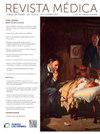Impacto de las metodologías activas en las estrategias de aprendizaje de estudiantes del área de la salud de primer año en la Universidad Finis Terrae
IF 0.4
Q4 MEDICINE, GENERAL & INTERNAL
引用次数: 0
Abstract
Students are expected to enter higher education with a set of learning strategies that will allow them to achieve academic success on their own. In practice, however, a memorization-based learning approach prevails, causing students to struggle with problem-solving, organizing ideas, and planning their studies.
Furthermore, instructors continue to rely heavily on lecture-based instruction and passive activities, stifling the development of effective learning strategies. The aim of this study was to assess the evolution of learning strategies among health sciences students in relation to the active methodological load imposed by instructors over the course of an academic year. A quasi-experimental study was conducted with 184 first-year students from three health science programs. Teacher methodological intervention occurred during the second semester in two of the three programs, and the time of active interaction was measured for all first-year classes during both semesters. The instructors administered the abbreviated ACRA test before and after a methodological intervention, and the data were compared to a control program. The data was analyzed using descriptive and inferential statistics, such as t-Student tests and mixed regression. The findings showed that learning strategies in experimental programs changed significantly as the use of participatory teaching methodologies and activities increased. It is concluded that the use of active and participatory methodologies is associated with an increase in the variety and frequency of learning strategies used.
主动学习法对 Finis Terrae 大学一年级健康专业学生学习策略的影响。
人们期望学生在接受高等教育时能够掌握一套学习策略,从而能够独立取得学业上的成功。然而,在实践中,以记忆为基础的学习方法盛行,导致学生在解决问题、组织思路和规划学习方面举步维艰。此外,教师仍然严重依赖于讲授式教学和被动活动,扼杀了有效学习策略的发展。本研究旨在评估健康科学专业学生在一学年中学习策略的演变与教师施加的主动方法负荷的关系。我们对来自三个健康科学专业的 184 名一年级学生进行了一项准实验研究。教师的方法干预发生在三个专业中的两个专业的第二学期,并对两个学期中所有一年级班级的积极互动时间进行了测量。教师在方法干预前后进行了简短的 ACRA 测试,并将数据与对照课程进行了比较。数据分析采用了描述性和推论性统计方法,如 t-Student 检验和混合回归。研究结果表明,随着参与式教学方法和活动使用的增加,实验项目中的学习策略发生了显著变化。结论是,积极和参与式教学方法的使用与学习策略的多样性和使用频率的增加有关。
本文章由计算机程序翻译,如有差异,请以英文原文为准。
求助全文
约1分钟内获得全文
求助全文
来源期刊

Revista Medica Clinica Las Condes
MEDICINE, GENERAL & INTERNAL-
CiteScore
0.80
自引率
0.00%
发文量
65
审稿时长
81 days
 求助内容:
求助内容: 应助结果提醒方式:
应助结果提醒方式:


